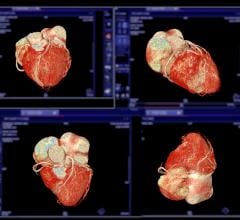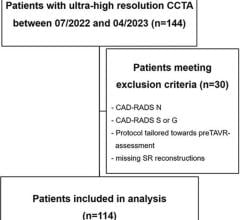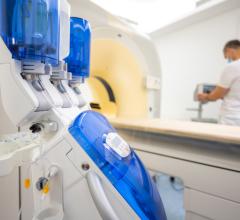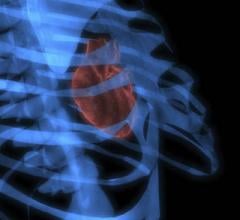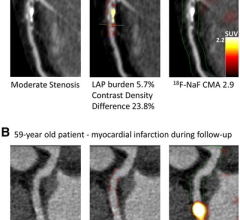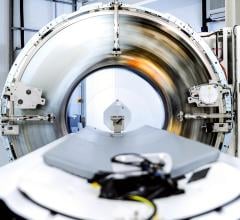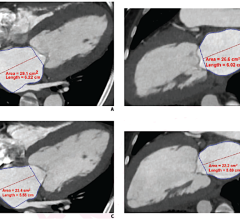September 2, 2008 – Two recent studies demonstrate the economical value of cardiac imaging, showing MDCT to be cost-effective for men and cost-saving for women, and demonstrating how echo is cost-effective in determining patient eligibility for ICDs (implantable cardioverter-defibrillators). In a study recently published in the American Journal of Roentgenology, lead investigator Joseph Ladapo, M.D., and his team at Harvard, identified cost-benefits of cardiac imaging by evaluating patients who presented to the ER with low-risk chest pain. Their research compared the “standard of care” to multidetector CT (MDCT) coronary angiography-base management and found MDCT to be cost-effective for men, and cost-saving for women. Hospital costs decreased by an average of $410 per female, while general per capita health care expenditures fell $380 for women. “Because coronary CT angiography is so good at ruling out disease, women…are much more likely to avoid a costly admission," said Dr. Ladapo. "I think there’s a strong case for reimbursing this technology when it’s used in women, but it’s cost-effective and ought to be reimbursed in men, too.” In another study, led by Andrew Krahn, M.D., and published in this month’s Journal of the American College of Cardiology, researchers demonstrated the cost-effectiveness of repeated echocardiography and multigated acquisition (MUGA) scanning in determining patient eligibility for an implantable cardioverter-defibrillator (ICD). Using a prospective cohort study that looked at 100 patients referred for an ICD, the test results showed that using cardiac imaging to verify the heart's blood pumping capacity resulted in identifying a significant number of patients – 31 of the 100 included in the study – as ineligible for an ICD. These findings ultimately lead to $603,722 in total savings, or approximately $6,037 per patient. “Access to high quality medical imaging has proven to be an essential factor in cardiac care, and it is crucial that patients, doctors and policymakers alike look to studies like these as yet another example of how imaging technology can improve patient treatment while reducing overall costs,” said Maureen Zilly, director, Government Relations, MITA. MITA is highlighting these studies to the industry not only to applaud the work of Dr. Krahn and Dr. Ladapo but to remind policy makers of the importance of medical imaging technology in treating heart disease and mitigating healthcare costs. For more information: www.medicalimaging.org
If you enjoy this content, please share it with a colleague
Related Content
Nov. 12, 2025 — On Nov. 11, Huntsman Cancer Institute at the University of Utah (the U) opened its first specialized ...
April 30, 2025 – Viz.ai, the leader in AI-powered disease detection and intelligent care coordination, has launched Viz ...
Computed Tomography (CT) continues to be a rapidly evolving technology with many new advancements, as displayed and ...
February 20, 2024 — Ultrahigh-spatial-resolution photon-counting detector CT improved assessment of coronary artery ...
August 2, 2022 – A new update has been announced as the radiology world continues to address supply disruptions of ...
July 29, 2022 — Siemens Healthineers has announced the Food and Drug Administration (FDA) clearance of the ARTIS icono ...
July 8, 2022 — The Society of Cardiovascular Computed Tomography (SCCT) has released a new expert consensus document on ...
January 12, 2022 — By combining information from two advanced imaging techniques with clinical data, physicians can ...
The U.S. Food and Drug Administration (FDA) cleared the world's first photon-counting computed tomography (CT) scanner ...
October 14, 2021 — Cardiac computed tomography angiography (CTA) derived left atrium emptying fraction (LAEF) improves ...


 November 13, 2025
November 13, 2025 

